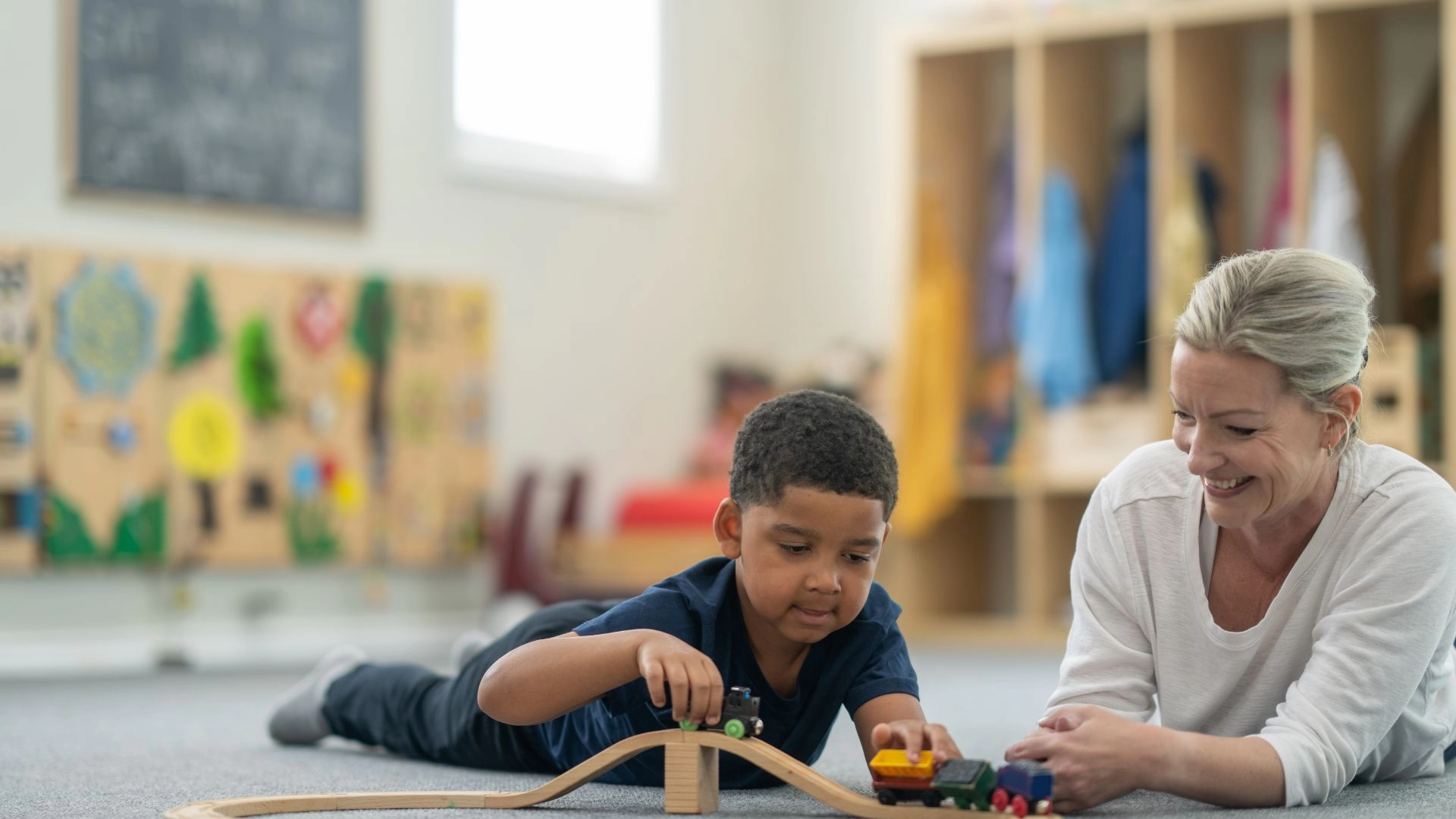We recognize that managing anger can be challenging for children, and our Child Counselling Therapy in Oakville is here to help. We focus on providing a compassionate space where kids can express their feelings and learn essential coping strategies. Through techniques like Cognitive behavioral Therapy and Play Therapy, we guide children in understanding their emotions and improving self-control. Our goal is to empower them with the skills they need for healthier emotional responses. We’re committed to supporting your child’s journey toward emotional resilience and stability, and there’s so much more available to explore as we walk this path together.

About Child Counselling Therapy For Anger Issues
Child counselling therapy is a compassionate approach we can use to help young ones navigate their emotions and develop healthy coping strategies. In our therapy sessions, we focus on emotional regulation, providing kids with tools to manage their feelings effectively. Through behavioural therapy for kids, we teach techniques that not only aid in anger management but also foster resilience and self-awareness.
We believe that emotional support for children is essential for their overall well-being. By engaging in therapy for kids, children learn important skills like conflict resolution and stress management. These skills empower them to handle life’s challenges more effectively, leading to improved relationships with peers and family members.
Our child mental health services are designed to create a safe space where kids feel comfortable expressing themselves. In this environment, we encourage open communication, enabling them to unpack difficult emotions and experiences. Together, we work toward building a strong foundation for their emotional health, ensuring they have the tools they need to thrive. Ultimately, our goal is to guide each child toward a brighter future, equipped with the skills necessary for emotional balance and resilience.
Understanding Anger Management in Kids
Anger is a natural emotion for kids, but understanding how to express it in healthy ways is important for their emotional growth and well-being. We often find that children can struggle with emotional regulation, which can lead to outbursts or acting out when they encounter anger triggers. Child counseling plays a significant role in helping them navigate these feelings.
Through behavioral therapy, we can teach kids effective anger management techniques that foster emotional resilience. By identifying their triggers and developing coping strategies, children can learn to respond to their emotions more constructively. Stress management for children is another essential aspect; when they feel overwhelmed, having the tools to calm themselves is invaluable.
We can also help kids enhance their problem-solving skills, allowing them to tackle challenges without resorting to anger. For some, therapy for kids with anxiety can complement anger management efforts, addressing underlying issues that contribute to their emotional turmoil. As we support our children in these areas, we empower them not only to manage their anger but to grow into emotionally intelligent individuals capable of handling life’s ups and downs.
How Child Counseling Helps in Managing Anger issues in children
When kids struggle with anger, counseling can provide a safe space for them to express their feelings and learn healthy coping strategies. Through child counseling therapy, we help children explore their anger issues in a supportive environment. By fostering emotional awareness, they begin to recognize triggers that lead to outbursts and develop a deeper understanding of their emotions.
We focus on teaching emotional self-regulation, which is essential for anger management. Kids learn behavior modification techniques that empower them to change their response to frustration. We introduce stress management tools and calming strategies, equipping them to handle challenging situations more effectively.
As they build frustration tolerance, children gain self-control over their emotions, allowing them to navigate conflicts with greater ease. Our goal is to help them replace impulsive reactions with thoughtful responses, creating healthier interactions with peers and family.
Through this process, we witness significant growth in their ability to manage anger, ultimately leading to improved relationships and emotional well-being. Together, we can support our children in transforming their anger into a more constructive and manageable emotion.

Cognitive Behavioral Therapy (CBT) for Anger Control in Children
Through Cognitive Behavioral Therapy (CBT), we can help children identify and reshape the thought patterns that contribute to their anger, fostering healthier emotional responses. This approach is a crucial part of our child counseling therapy, focusing on emotional regulation and effective anger management therapy.
In CBT, we work with children to pinpoint their anger triggers, guiding them through the process of understanding how these triggers influence their behavior. By recognizing these triggers, we can assist in child behavior modification, enabling kids to develop more positive reactions. We also teach essential stress coping mechanisms that empower children to manage their emotions better.
As we engage in individual therapy sessions, we provide emotional support tailored to each child’s unique needs. Our goal is to build emotional stability, ensuring that children feel secure as they navigate their feelings. Through consistent practice and reinforcement of these skills, children can experience significant changes in their responses to anger, leading to a more peaceful life.
Play Therapy for Expressing Emotions and Controlling Anger
Using play therapy allows us to create a safe space for children to express their emotions and learn to manage their anger in a constructive way. Through therapeutic play, we can engage children in activities that promote emotional expression, helping them articulate feelings they might struggle to verbalize. This method is particularly effective in child counseling therapy for those dealing with child behavior disorders and emotional challenges.
In our sessions, we encourage children to explore various coping mechanisms, enabling them to discover ways to self-regulate their responses to anger. By acting out scenarios through play, they can practice new strategies for anger management in a supportive environment. We’ve seen how this approach fosters emotional healing for children, allowing them to develop resilience and better navigate their feelings.
For troubled youth, play therapy offers an invaluable opportunity to connect with their emotions. It empowers them to express their frustrations and fears while learning healthier ways to cope. Ultimately, our goal is to help children build a foundation for emotional growth that extends beyond the therapy room, equipping them with skills that last a lifetime.

Art Therapy for Managing Anger and Fostering Emotional Growth
Building on the principles of play therapy, art therapy provides another powerful avenue for children to express their anger and foster emotional growth. We often find that art therapy for kids allows them to communicate feelings they might struggle to verbalize. Through creative expression, children can explore their emotions in a safe environment, using colors, shapes, and forms to represent their feelings.
In our sessions, we incorporate various anger management techniques, guiding children to channel their anger into art. This not only aids in emotional development but also enhances their emotional well-being. As they engage in child therapy activities, we introduce relaxation techniques that help them find stress relief, promoting a sense of calm.
Art therapy serves as an effective form of child counseling therapy, as it encourages children to process their feelings while developing coping strategies. By fostering creative expression, we empower them to manage their anger constructively. Ultimately, our goal is to support the emotional development of children, helping them navigate their feelings and build resilience. Together, we can create a nurturing space where children feel understood and valued.
The Role of Family Therapy in Helping Children Manage Anger
Family therapy plays an essential role in helping children navigate their anger by creating a supportive environment where everyone can express their feelings and work together toward understanding and resolution. In our family therapy sessions, we focus on enhancing communication skills, allowing family members to share their experiences and emotions openly. This approach fosters emotional healing and helps children develop emotional balance.
Through child counseling therapy, we guide families in learning effective conflict management strategies. By participating in anger management classes, families can acquire interpersonal skills that enable them to address anger constructively. We believe that when families work together, they can create a safe space for children to explore their feelings and learn healthy coping mechanisms.
Our supportive therapy for children emphasizes collaboration between parents and children, ensuring that everyone feels heard and valued. This shared journey promotes understanding and strengthens family bonds, ultimately equipping children with the tools they need to manage their anger effectively. Child and family counseling not only addresses immediate concerns but also lays the foundation for long-term emotional well-being, empowering children to thrive in their relationships and daily lives.
School Counseling for Children Struggling with Anger Issues
School counseling can provide an essential support system for children grappling with anger issues, helping them learn to manage their emotions in a safe and understanding environment. Through child counseling therapy, we can guide these children in developing their emotional intelligence. By focusing on self-awareness, they can recognize their feelings before they escalate into anger.
In school counseling sessions, we often work on strategies for anger control and impulse control. Teaching frustration management techniques allows children to express their anger in healthier ways. Cognitive therapy can also play a significant role, helping them understand the thoughts behind their feelings and encouraging positive anger expression.
Moreover, we emphasize conflict avoidance strategies, equipping children with the tools they need to navigate difficult situations without resorting to anger. By fostering a supportive atmosphere, we encourage open discussions, enabling children to share their experiences and learn from one another.
Together, we can create a holistic approach to address anger issues, ensuring our children feel empowered and capable of managing their emotions effectively. With the right support and guidance, they can transform their anger into constructive actions and strengthen their relationships.
Effective Emotional Regulation Techniques for Children
One effective way we can help children manage their emotions is by teaching them practical emotional regulation techniques that empower them to respond thoughtfully rather than react impulsively. In our child counseling therapy sessions, we often focus on mindfulness as a key tool for anger control. By encouraging kids to practice deep breathing exercises, we can help them reduce stress and calm their minds during emotional outbursts.
We also emphasize the importance of positive communication. Teaching children to express their feelings in a constructive way can lead to anger reduction and foster healthier relationships with peers and family. Additionally, problem-solving strategies can equip them with the skills to tackle challenges without resorting to anger.
Addressing Childhood Trauma and Its Impact on Anger Behaviour
Understanding childhood trauma is crucial, as it can greatly influence a child’s ability to manage anger and cope with their emotions. When we engage in child counseling therapy, we recognize that unresolved trauma often manifests as frustration and anger in kids. Through effective child therapy and trauma therapy for children, we can help them process their experiences, promoting emotional well-being.
In our sessions, we focus on strategies for frustration control, guiding children towards healthier responses to their feelings. Anger reduction therapy plays a significant role in this process, offering techniques that empower children to express their emotions safely. By addressing the root causes of anger, we can improve mental health in kids and foster resilience.
Child behavioral therapy allows us to tailor our approach, ensuring that each child receives personalized support. As we navigate the complexities of their emotions, we create a safe space for healing. Our collaborative efforts in therapy for childhood trauma can lead to lasting change, equipping children with the skills they need for effective anger management. Together, we can help our children transform their pain into strength, paving the way for a brighter, more peaceful future.
Group Therapy for Kids and Teens Facing Anger Management Difficulties
Group therapy offers a unique opportunity for children to connect with peers who share similar struggles with anger management, fostering a sense of belonging and support. In our sessions, we explore various therapeutic interventions for children that focus on anger control and the emotional challenges they face. This setting allows us to provide anger therapy in a safe environment, where kids can express their feelings freely.
Through anger counseling, we help children understand their stress response and identify triggers for their anger. We also introduce self-calming techniques that empower them to manage their emotions more effectively. By participating in group therapy for kids, children learn valuable skills from one another, making the process feel less isolating.
As we work together, we promote child mental wellness and address underlying behavioral disorders in children. The connections formed in these groups help to normalize their experiences and encourage healthy coping strategies. Ultimately, group therapy not only aids in anger management but also nurtures a supportive community, giving children the tools they need to navigate their emotions and build resilience for the future.
Supporting Emotional Growth and Self-Awareness in Kids
Building on the connections formed in group therapy, supporting emotional growth and self-awareness in kids plays an essential role in helping them navigate their feelings and develop a healthy relationship with their emotions. In child counseling therapy, we focus on effective child therapy techniques that encourage self-reflection and emotional expression. By integrating relaxation exercises, we equip kids with tools for anger control, enabling them to manage overwhelming feelings better.
Through cognitive therapy for kids, we guide them in understanding the roots of their emotions, fostering resilience in the process. This parent-child therapy approach invites families to engage together, strengthening their bonds and promoting open communication about feelings. As we nurture emotional growth, we also enhance the overall mental health of our children, encouraging them to explore their thoughts and feelings in a safe environment.
Ultimately, our goal is to empower kids with the skills they need to identify, express, and manage their emotions effectively. By investing in their emotional development, we’re laying the groundwork for healthier relationships and better coping strategies throughout their lives. Together, we can help our children thrive emotionally and socially.
Parenting Tips and Strategies for Managing a Child's Anger Problems
When our children struggle with anger, it’s important to approach the situation with empathy and practical strategies that can help them express their feelings in healthier ways. We can start by setting healthy boundaries that provide our kids with a sense of security. This helps them understand what’s acceptable and what’s not, paving the way for effective anger control.
We should consider seeking parenting support, like child counseling therapy, to learn techniques for anger de-escalation. Engaging in child therapy sessions can also give our children tools to manage their emotions. For instance, assertiveness training can empower them to express their needs without resorting to anger.
Additionally, integrating child social skills therapy into our routines can foster positive interactions with peers, reducing frustration and emotional outbursts. If we notice signs of deeper issues, such as chronic anger or anxiety, we may need to explore therapy for childhood anxiety or crisis intervention for children.
Ultimately, by being proactive and supportive, we can help our children navigate their emotions, leading to healthier responses and more harmonious relationships. Together, we can cultivate a nurturing environment for our children’s emotional growth.
Mindfulness Techniques for Stress Relief and Anger Control in Children
In moments of stress and frustration, practicing mindfulness techniques can be a powerful way for our children to regain control over their emotions and cultivate a sense of calm. Mindfulness for kids encourages them to focus on the present, allowing them to observe their feelings without immediate reaction. This approach is particularly effective in child counseling therapy, where we can integrate these techniques into child therapy programs designed for managing anger control.
By teaching our children de-escalation techniques, we empower them to handle emotional issues more effectively. Simple practices like deep breathing, grounding exercises, or visualizing a peaceful scene can provide immediate stress relief. These child-focused therapy methods not only help in the moment but also contribute to long-term strategies for adolescent mental health.
In therapy for school-aged children, we can guide them through these mindfulness exercises, ensuring they feel safe and supported. As we work together, we’re building their emotional resilience, helping them navigate challenges with a clearer mind and a calmer heart. By incorporating mindfulness into our daily routines, we can foster a healthier emotional landscape for our children, setting them up for success in managing anger and stress.
Early Intervention Approaches for Children with Anger Management Issues
Early intervention can make a significant difference for children struggling with anger management issues, helping them develop healthier coping strategies before their emotions become overwhelming. By engaging in child counseling therapy early on, we can guide children toward effective anger control techniques that promote emotional regulation.
In our approach, we often use play-based therapy, which allows children to express their feelings in a safe, supportive environment. This method not only aids in child development but also helps in building trust. Through child-centered therapy, we focus on each child’s unique needs, ensuring that they feel heard and understood.
For special needs children, early intervention therapy can be particularly beneficial, as it tailors psychological therapy for children to their specific challenges. By incorporating elements of child psychotherapy, we encourage kids to explore their emotions and learn constructive responses.
As children grow, it’s essential to continue support through adolescent therapy when necessary, reinforcing the skills they’ve acquired. Ultimately, our goal is to empower children, equipping them with the tools they need to navigate their emotions and thrive in their everyday lives.
Contact Our Child Counselling Therapy Center for Help with Anger Management in Oakville
If you’re seeking support for your child’s anger management challenges in Oakville, our child counseling therapy center is here to help. We recognize that dealing with anger control can be overwhelming for both children and parents. Our dedicated child therapists are trained to provide effective child counseling services tailored to your child’s unique needs.
We offer a variety of therapeutic approaches, including trauma-informed therapy, to help children process their emotions and manage mood swings. For adolescents, our adolescent counseling and therapy for teens can equip them with the skills they need to navigate their feelings in a healthy way. We also provide group therapy sessions, allowing children to connect with peers facing similar challenges, creating a supportive community.
If your child has experienced trauma or needs therapy for child abuse, we’re here to support them through their healing journey. Together, we can foster a safe environment where your child learns to express their emotions constructively. Reach out to us today, and let’s begin on this path toward emotional well-being together. Your child deserves the best tools for managing their anger, and we’re committed to helping them achieve that.

About Town of Oakville
Oakville is a vibrant town that offers a welcoming community for families, making it an ideal place for children to grow and thrive. Here, we can find numerous resources dedicated to child counseling therapy, helping our kids tackle anger control and other emotional challenges. With a variety of services available, including therapy for ADHD in children and counseling for kids facing anger disorders, we’re never alone in our journey.
At our Child Counselling Therapy Center in Oakville, we offer comprehensive family support therapy, helping families foster healthy communication and mutual understanding. Our early childhood therapy programs are designed to help young children navigate emotional challenges, providing them with the tools to effectively manage their feelings. For more specific needs, our parent-child therapy strengthens family bonds and enhances interactions, while our grief counseling services support children coping with loss, guiding them through the healing process.

- Dundas Street (Highway 5)
- Trafalgar Road
- Lakeshore Road
- Speers Road
- Third Line
- Upper Middle Road
- Bronte Road
- Royal Windsor Drive
- Winston Churchill Boulevard
- Ford Drive
- Dorval Drive
- Rebecca Street
- Great Lakes Boulevard
- 16 Mile Drive
- QEW (Queen Elizabeth Way)
- North Service Road
- South Service Road
- Maple Grove Drive
- Burnhamthorpe Road
- Glenashton Drive
- West Oakville
- Falgarwood
- Kerr Village
- Clearview
- West Oak Trails
- Bronte
- Palermo
- Ennisclare Park
- Glen Abbey
- Uptown Core
- Oakville East L6K
- Oakville South L6L
- Oakville North L6H
- Oakville West L6M
- Oakville Northeast L6J
Frequently Asked Questions
What Age Is Appropriate to Start Counseling for Anger Management?
When we think about the right age to start counseling for anger management, it really varies for each child. Some children might benefit from guidance as early as five or six, while others may not need it until they’re older. It’s important we recognize the signs of struggle, regardless of age, and seek support when necessary. We’re all unique, and finding the right time for counseling can help pave the way for healthier emotional expression.
How Long Does Child Counseling for Anger Management Typically Last?
When we think about how long counseling for anger management typically lasts, it can vary based on each child’s needs. Generally, we might expect sessions to last from a few weeks to several months. It’s important to remember that every child is different, and progress can take time. We should focus on creating a supportive environment where they feel safe to express themselves and learn effective coping strategies.
Are There Specific Signs That Indicate My Child Needs Counseling?
When we notice specific signs in our child, it’s crucial to contemplate counseling. If they’re experiencing frequent mood swings, exhibiting aggressive behavior, or struggling to express their feelings, these could be indicators. Withdrawal from friends or activities they once enjoyed might also signal a deeper issue. It’s vital to trust our instincts as parents; seeking support can provide our child with the tools they need to navigate their emotions and thrive.
What Qualifications Should I Look for in a Child Counselor?
When we’re searching for a child counselor, we should look for someone with relevant qualifications, like a master’s degree in psychology or social work. It’s important they have experience working with kids, especially in areas we’re concerned about. We’ll want to check for licenses and certifications, as these show their expertise. A good counselor should also have a warm, approachable demeanor, making our child feel safe and understood during sessions.
How Can I Support My Child Between Counseling Sessions?
We can support our child between counseling sessions by creating a safe space for them to express their feelings. Let’s encourage open communication, listen without judgment, and validate their emotions. Practicing calming techniques together, like deep breathing or mindfulness, can also be beneficial. It’s important to check in regularly and remind them that it’s okay to feel what they’re feeling, reinforcing that they’re not alone in this journey.
